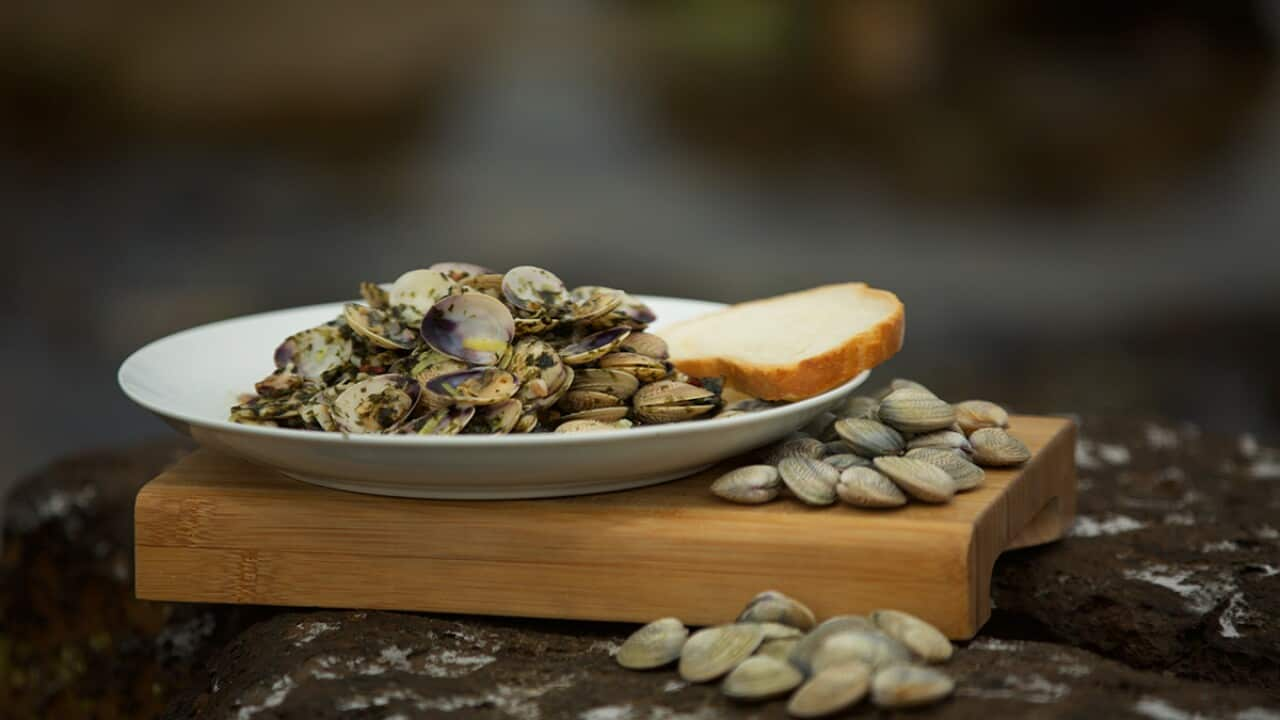We can’t escape our ancestry. No matter our place of birth, we are inevitably tied to those who came before; and their history, their culture, informs how we see ourselves.
So, even though I sound like I was born in Australia, even though I can only really remember Australia as my home, I actually drew my first breath in South Wales, near a town called Abergavenny. And even though I came out to Australia on a boat when I was four, and even though my dad was born in the US (to Welsh parents), it is the English and Welsh heritage of my grandparents that has seeped, somehow, into my blood.
For a long time, I wished I’d been born Italian. Or Greek. Or Spanish. Or Thai, or Chinese, or into any number of cultures with a strong culinary heritage. Instead, I was born to parents whose very Britishness meant they were usually the butt of culinary jokes. The shoulders I stand on are those of a people who lived where it was considered uncouth to talk about food at the table. England, Wales, and Scotland (I have some Scottish blood) were countries that were quick to shed their connection to the soil thanks first to the industrial revolution, then to rationing during both World Wars. When the French refer to a dish as ‘a la anglaise’ they usually mean it has been boiled. Sauce anglaise is custard. When I read Asterix in Britain to my son, the Gauls reel in horror at the prospect of their beloved wild boar being boiled (rather than spit-roasted) and served with mint sauce. That, and warm beer. It’s hardly a culture to be proud of. Or is it?
For a long time I wished I’d been born Italian. Or Greek. Or Spanish. Or Thai, or Chinese, or into any number of cultures with a strong culinary heritage.
I have a family friend who says that living in Wales, when she was young, had some similarities to living with an Italian family. Late every autumn her swing would disappear from the backyard, only to be reassembled in the shed, from where a freshly slaughtered pig would be hung, cut, and cured. Sausage making in the old country is an art of which I can only dream of discovering. Bacon curers are considered noble artisans in Britain and Ireland. Each region of the UK has a pastry, or a pie, or a tart, or perhaps a bread, that they were once famed for. Yes, some of that has been lost, but much is being rediscovered or saved before it passes from knowledge.
Wales, the country where I was born, is known for a few things. is one, the amazing cheese on toast, where the cheese is mixed with beer and mustard and perhaps a touch of Worcestershire before being grilled. It’s like the ultimate cheese on toast. Humble? Yes, but utterly delicious as well. Welsh comfort food at its best: a
Welsh comfort food at its best: a

Source: Alan Benson
My connection to my Welsh heritage is, perhaps, tenuous. My father, who held the Welsh bond on his side of my family, rarely cooked. His mother, a native Welsh speaker, was wheelchair-bound after a stroke and unable to venture into the kitchen when I was alive. Nanna was never able to visit us in Australia, so the bonds that tied, practically, were only thin. My paternal grandfather died before I was born.
And yet, I consider myself part Welsh. I have a few Welsh dishes in my repertoire, including cawl (pronounced ‘cowl’), a rich soup of brisket and parsnips in my version. I’m a huge fan of bara brith, a dense fruit bread studded with tea-soaked fruit, served smothered in butter. It literally means ‘speckled bread’. We make Welsh cakes on occasion, a lovely currant spiked pastry cooked, ideally, on a cast iron plate, called a hot stone.
The Welsh are known for Caerphilly, a lovely cheese, though many of their other farmhouse cheeses are sadly now defunct. They’re known for , a paste of slow-cooked seaweed perhaps served for breakfast with and bacon, or used to flavour the incomparable Welsh lamb. The ingredient most associated with Wales, perhaps, is the leek.
Is Welsh, or even British cookery in general, one of the great cuisines? Probably not. Is it important to me, because it ties me to my ancestry? Yes, it is. Good recipes are heirlooms, tried and tested ways that are meant to be handed down to each passing generation. Welsh cookery does have something to add to the culinary world, albeit perhaps as a footnote to some of the more complex cuisines. It’s an expression of place, of culture, of the ingenuity of the people from a certain corner of the globe. It’s not stuck in time, but rather food is a shifting reference to where I come from.
Is Welsh, or even British cookery in general, one of the great cuisines? Probably not. Is it important to me, because it ties me to my ancestry? Yes, it is.
We are the result of our ancestors. We cannot deny the threads of influence that have remained intact through the years, despite geography. Whether you’re from Sudan, from Nhulunbuy, from Sardinia or from Marrakech, what makes you, and makes your table unique, are the lines of mothers and fathers that have come before. Our food is a part of who we are, how we see ourselves, and how we value those around us. It’s an expression of us, as complex, as diverse, as individual as those who cook it. And every time we stand on the shoulders of those who came before, we honour their time on this earth. And for this, we should be thankful.





